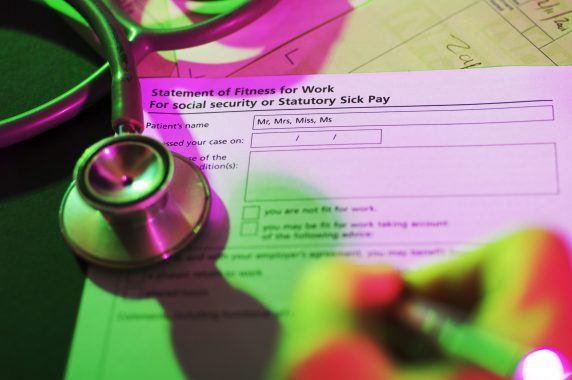A universal basic income could free GPs to focus on their real job


Dr Matthew Johnson

Elliott Johnson
Earlier this year, shadow chancellor John McDonnell revealed that Labour may include a trial of universal basic income (UBI) in its next manifesto. For GPs, and other health workers, a UBI may offer a common-sense means of transforming the relationship of their patients with the NHS.
While there is understandable concern about rewarding freeloading, research suggests a UBI could empower millions of citizens to upskill themselves, pursue career aspirations and contribute productively. Vitally, it may also promote public health as the sort of ‘upstream’ intervention some have advocated for creating a sustainable NHS.
As researchers, we passionately believe in the benefits of work to our health and wellbeing. Work is central to our nature, and worklessness renders us unable fully to realise our potential. Regrettably, various forms of work are not remunerated or managed properly, leaving many people in in-work poverty or burdened by stress-related ill-health.
There are many reasons for this including ever more precarious employment, epitomised by zero-hours contracts. Even in more stable employment, employers have gained too much power, with organisations adopting ever increasing hierarchical inequalities that inflict stress-related harm on all but those at the top. The Whitehall Study of civil servants demonstrated that, contrary to received opinion, physiological measures of stress increase as position within the hierarchy decreases. This ties in with the way subordinate employees are often in a constant state of preparedness to deal with arbitrary demands of management for fear of being dismissed. Indeed, our research suggests it relates to a sensed threat of destitution.
As a result, work is often not the pathway to wellbeing it should be. In 2016/17 stress was found be responsible for 40% of all work-related cases of, and 49% of all working days lost due to, ill-health. Although the causal endocrinological and physiological mechanism is debated, exposure to stress leads to illnesses that place burdens on the NHS and public finances. In 2012, stress-related long-term health conditions affected a quarter of all people in England – some 15 million – through such conditions as heart disease, stroke, cancer, type 2 diabetes, arthritis and depression.
This crisis in stress has been compounded by reforms to the welfare system that disincentivise health-promoting behaviour. The situation has created a series of ‘patient-side’ barriers, which mean that patients dismiss longer-term interests and view GPs as gatekeepers to benefits, undermining their relationships with their patients in the process.
This is highlighted by our work with GPs working in areas of deprivation in the North East. Through surveys and a focus group, we explored how a UBI might impact patients in precarious employment and long-term receipt of benefits.
One GP in our focus group noted that patients in in-work poverty often patch themselves up and avoid taking time off work ‘when genuinely ill for fear of “losing favour” with their employers and having their hours cut’ until serious health problems render them unfit for work. Quite apart from missing opportunities to catch illnesses and conditions at an early, treatable stage, this means that once unfit for work, people often find themselves faced with either returning to work while still ill, or demonstrating ongoing serious ill-health in order to qualify for needs-based benefits.
Once on those benefits, there are clear incentives to remain ‘ill’. As another GP noted, ‘you want to prove to the state that you’re as ill, and disabled, and incapable as you possibly can otherwise your kids might starve’. This can involve taking the strongest, most addictive painkillers and avoiding activity that would improve health, but run the risk of having benefits cut.
This creates a cycle of stress-related ill-health that leads otherwise hardworking people to totally self-destructive decisions. Nobody benefits from this, not least GPs who are trained to address health problems, but are increasingly tasked with managing social problems.
Our research with GPs suggested that there is potential for UBI to clarify healthcare relationships. One GP claimed that UBI ‘would be a solution for the pointless sick note system, the pointless reports to the benefits agency’, while another thought that it ‘would make me change quite a bit of my consulting behaviour’ toward promoting long-term health interests.
We would urge GPs to engage proactively in shaping any future trial of UBI and contributing to the policy discussions that emerge from it.
At a time of perpetual crisis in the NHS, it may be that a properly costed social and monetary policy offers us a transformative means of freeing GPs to do the job they set out to do.
Dr Matthew Johnson is a senior lecturer in politics at Lancaster University and Elliott Johnson is a disability researcher
Visit Pulse Reference for details on 140 symptoms, including easily searchable symptoms and categories, offering you a free platform to check symptoms and receive potential diagnoses during consultations.











